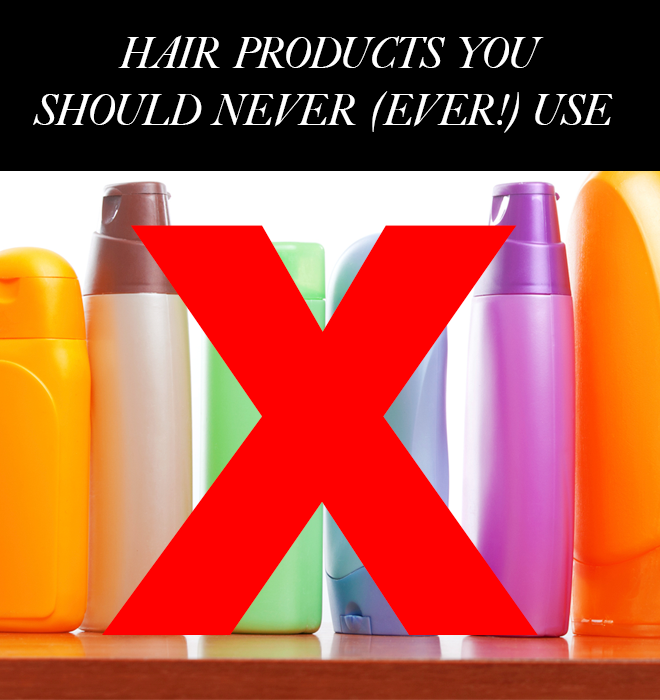Table Of Content
- Gua Sha Experts On How To Lift & Depuff Your Eyes In No Time
- Are Silicones Bad For My Hair?
- But my shampoo says it’s “silicone-free”
- Silicones only provide an aesthetic benefit; they do nothing for overall hair health.
- Are silicones or sulfates worse for hair?
- Harvard Health Ad Watch: New drug, old song, clever tagline

Moderation and clarifying washes are key for those who choose to use silicone products. They do this by nature, and the reason they are theoretically great at reducing frizz (frizz is caused by humidity lifting up the hair's cuticle2, resulting in a frayed, puffy texture). So when you wash it, they cling to hair and don't easily rinse off as they are repelling the water instead of dissolving in it. As noted above, silicones make hair shiny, soft, frizz-free, and manageable. But it does this by making a superficial coating around the strand, not by providing the hair nutrients or moisture. To teach you all there is to know about silicones in haircare—including how there are good and bad versions—we spoke with three hair industry experts.
Gua Sha Experts On How To Lift & Depuff Your Eyes In No Time
The only thing it can affect is the strength and appearance of your hair. A weighty feel, dryness, and hard-to-remove buildup are common silicone concerns. While not necessarily "bad," they may require more thorough cleansing and occasional clarifying shampoos to prevent buildup. It's essential to choose hair products wisely and monitor how your scalp responds to silicone-containing products. Find out whether silicone in hair products is as evil as it's often made out to be. TexturedTalk.com was created to promote healthy hair care for women of all textures and has since evolved into other beauty and lifestyle topics.
Are Silicones Bad For My Hair?
It comes down to whether the silicone is water-soluble or non-water-soluble. According to Healthline, cyclomethicone is a breathable, lightweight silicone. It is also water-soluble, meaning it can wash out easily. On the contrary, amodimethicone and dimethicone are heavier and may take multiple washes with a clarifying shampoo to remove them. Instead, you want to stick to silicones like dimethicone copolyol and stearoxy.
But my shampoo says it’s “silicone-free”
But leaving silicone products on without a clarifying wash leads to negative effects on your hair. While silicones lock moisture into your strands, the protective coating they form keeps out other substances that could be beneficial. Adding leave-in conditioners or nutrient-rich hair oils to your strands after using a heavy silicone product won’t do any good. In the haircare community, using silicone can be a touchy subject.
Silicones only provide an aesthetic benefit; they do nothing for overall hair health.
If you need guidance on how often you should actually be washing your hair, read our guide to shampooing. Great for preventing frizz, this conditioner from Living Proof works to smooth each strand by blocking and resisting humidity on contact. It's both weightless and nourishing, promising to leave your hair softer after just one use. If you’re still feeling a little wary, there are some other ingredients that offer similar, silicone-esque benefits. Clarifying shampoos are designed to strip most types of buildup, including silicone. That’s why you should always follow this deep-cleaning shampoo with a conditioner.
Are silicones or sulfates worse for hair?

If the strands are constantly dry, brittle with increased porosity (the ability to soak up water quickly), silicones can temporarily help with those issues. When googling what not to use on your natural hair, silicones definitely made the top ten. They have a bad reputation for making natural hair dry by blocking moisture.
"It combines chelating agents with apple cider vinegar to help remove product and dead skin build-up," she says. Her final recommendation is the DevaCurl Buildup Buster, which she says is a particularly good option for those with curly hair. "It uses micellar technology to help eliminate product build-up, while also offering hydrating benefits through Abyssinian seed oil and jojoba oil." Everyone’s hair is unique and responds differently to things like heat, humidity, and hair care products. There is no need to avoid silicone in your hair products altogether, especially since many hair products are formulated with some silicone.
These Are the Chemicals That Should Not Be in Your Hair Products - VICE
These Are the Chemicals That Should Not Be in Your Hair Products.
Posted: Mon, 11 Jun 2018 07:00:00 GMT [source]
Harvard Health Ad Watch: New drug, old song, clever tagline
Add to this the rest of the ingredients which are plumeria extract, papaya extract, and coconut milk, and you know that you will have a shampoo that enriches and nourishes your strands significantly. You can breathe a sigh of relief knowing that this product doesn’t come with any synthetic ingredients like silicone, paraben, and phthalates. You don’t really need these synthetic ingredients to give your curls the nourishment they need. How will you be able to find the right silicone hair product for you? Just as with any product that you purchase, you should do your research first. Don’t just read the label but take a closer look at the list of ingredients.
Silicone-free products to try
A clarifying shampoo is designed to cleanse the scalp from any impurities which can help make your mane feel lighter, bouncier, and smoother too. So while no silicone in hair-care products is toxic—that doesn’t mean some don’t have negative side effects. These include silicones like cyclopentasiloxane and dimethicone, he says. With a clarifying shampoo, like Neutrogena’s Anti-Residue Shampoo ($8), or a DIY hair rinse. “Fine, I’ll just keep using my silicone shampoo and make sure to use a clarifying shampoo every week,” you say. Not so fast—though clarifying shampoos will remove silicone buildup, many of them do so by using sulfates, which strip your strands of all buildup and excess product, but also a lot of their natural oils.
These are the ones that I think are worth starting with. Now it’s time to shop for a different shampoo that has enough cleaning power that it cleans well enough to remove the silicones. Here is a list of silicones that do not wash out easily. Because these variants do not stay on the very hair long.
They can actually benefit everyone, but only if used sparingly. Le suggests not going overboard with any hair products, whether they contain silicone or not. Our philosophy is simple - help you create your “new me.” NuMe believes in designing professional-quality hair styling tools and hair care products that are accessible to everyone and enables you to replicate salon results at home. While silicones are not toxic for hair and can't cause physical harm, they are not the best ingredient to have in your shampoo or hair product. However, it may be difficult to spot them if you don't know what to look for - there are different types of silicones which appear under different names. Read on for a few favorite hair products that feature silicones — water-soluble, of course — as well as some silicone-free favorites.
In fact, it’s completely safe to apply to your hair and won’t harm your physical health in any way. The seal they create keeps hair hydrated from within, but this protective layer can block other nourishing ingredients from penetrating deep into the hair follicle. This can be especially useful for people whose hair doesn’t tolerate humidity well. Curly and wavy hair tends to be on the coarse side of the texture spectrum, so silicone protocols apply.
Well, for some they may be ladies depending on your hair care goals. However, some silicones might be the best thing that has worked for your hair since going natural. They can also make the hair surfaces smooth, manageable and can also fill in gaps, similar to proteins. So the variants that don’t typically build-up, don’t wash out easily but may require clarifying are ideal based on the condition of your hair.
There is no current scientific evidence that silicones cause hair loss. If you have a great deal of silicone build up it, this can cause breakage. Unsure if you’re dealing with silicone buildup or something else?

No comments:
Post a Comment